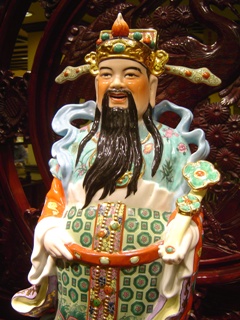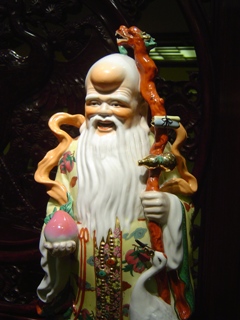Received an interesting email. I could not help laughing. This is another typical daily stuff that I didn’t pay attention but my readers did.
The question for Shanghai today is, why maps in Shanghai are upside down?
Hi Jianshuo,
Always read your blog, keep it up.
Here’s an interesting thing you might like to comment on. It concerns
Chinese map reading.
When in Shanghai recently (third time!) I went to the Century Park to check
out the metro station and the park entrance before
the big firework show on September 30 (spectacular!) the exits to use and
to also check out a concert at the Oriental Concert Hall across the road
from the Metro station.
The Metro station has a very convenient map on the wall showing the exits
etc and NORTH is clearly shown. However, I already had some idea about the
correct direction from Google Earth and was puzzled by the map. It soon
became clear that it was UPSIDE down! OK, a mistake, just reorientate and
get on with it.
However on the way back I stopped off at another Metro stop and noted also
on a map the road I wanted. North was marked also and I noted the way East
which is where I wanted to go. But uh uh, part was “east” i noted the road
numbers were going the wrong way. This map was also UPSIDE DOWN! with
North actually pointing south so I had to waste time retracing my steps.
What is going on??
Now, while in China I learned Mahjong (a little) and when returning home
checked out an old Hong Kong Mahjong rules book.
This notes that the seating position in order of the 4 winds is actually
opposite to reality. EAST is the main wind with North to its LEFT etc.
The reality is that NORTH is actually to the RIGHT of east on any map (in
reality). On internet checking I note that this is not a mistake but a real
part of Mahjong rules.
So here is a though about the upside down maps in the Metro stations? Are
they related to Chinese peoples’ thoughts about direction related to
Mahjong? :-) Why the strange Mahjong winds? Hmmmm….
There are different reasons to the different scenarios. Let me explain it one by one.
Maps in Metro
You are right. Many metro stations don’t use the “North” as the top in their maps. They position the maps just for the convinience of reader. Which ever direction the reader is facing, they use that direction as top. So it gives the reader clear idea about how they can use an exit.
For example, if you are facing east, and north should be on left, and south on right. Just check the map and see it from where you stand, then you understand whether you should turn left (to north) or south (to right) without understanding which direction you are facing.
This is very typical diagram you see in China. The map that works!
I remember there must be similar maps in other places. This should be the easiest way for readers to find their way.
Maps in China
Currently China uses the “North on top” map system, as most places in the world. But do you know that in history, Chinese map is always south on top?
I believe that is because of the same reason of the maps in Metro. People in China like to stand facing the South (where the Sun is), and with his/her back to north. This is how the architect of China was designed.
If people live this way, it makes sense to draw the maps with South on top – exactly the way people see their world.
Most people don’t know about this. I checked some ancient maps, and it WAS upside down from current point of view.
Look at the Forbidden City.
Although currently it is upside down (with north on the top), the names of the gates still give you some hint about how they were designed.
The gates on the left side of the palace was called “RIGHT gate”, and the gates on the right was called “LEFT gate”. The maps changes, but the names were not.
For the Mahjong, Hmm… I don’t play Mahjong, so have no comment on it. Anyone want to help?



